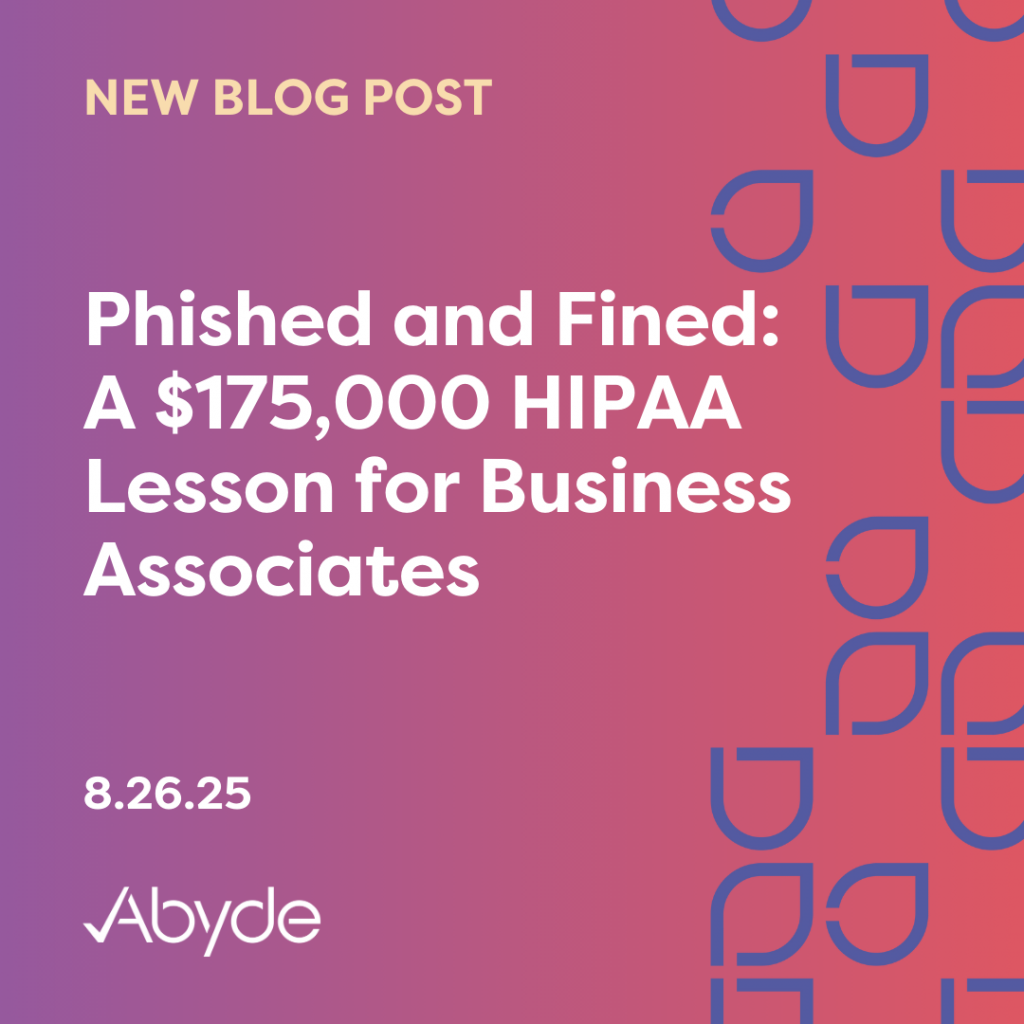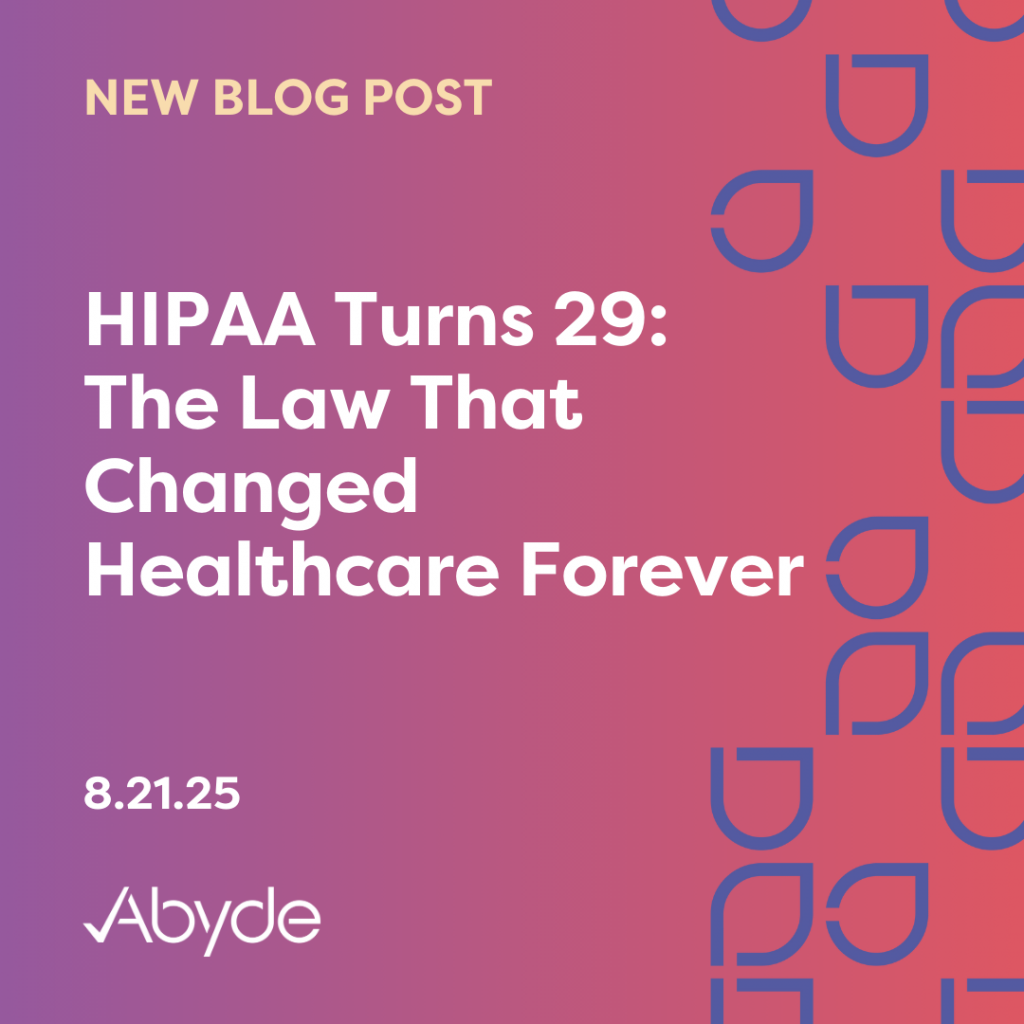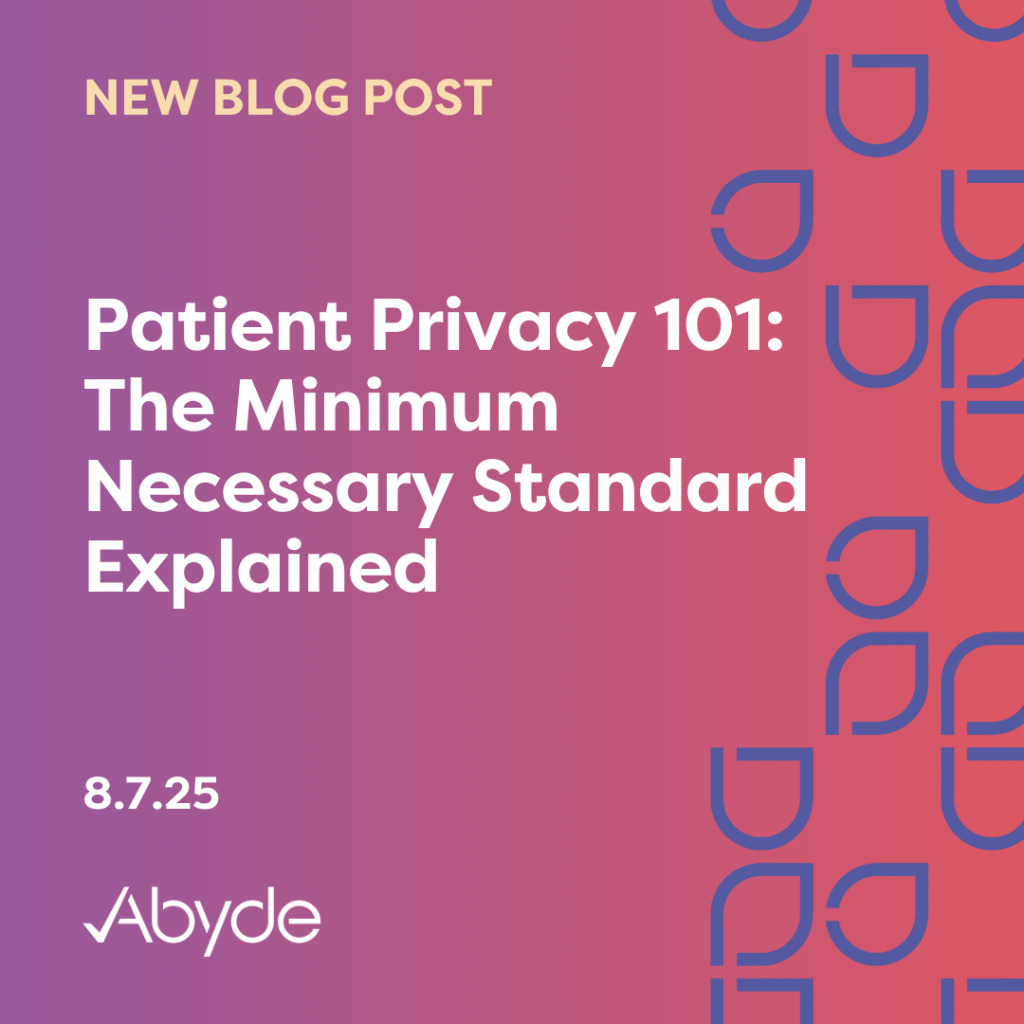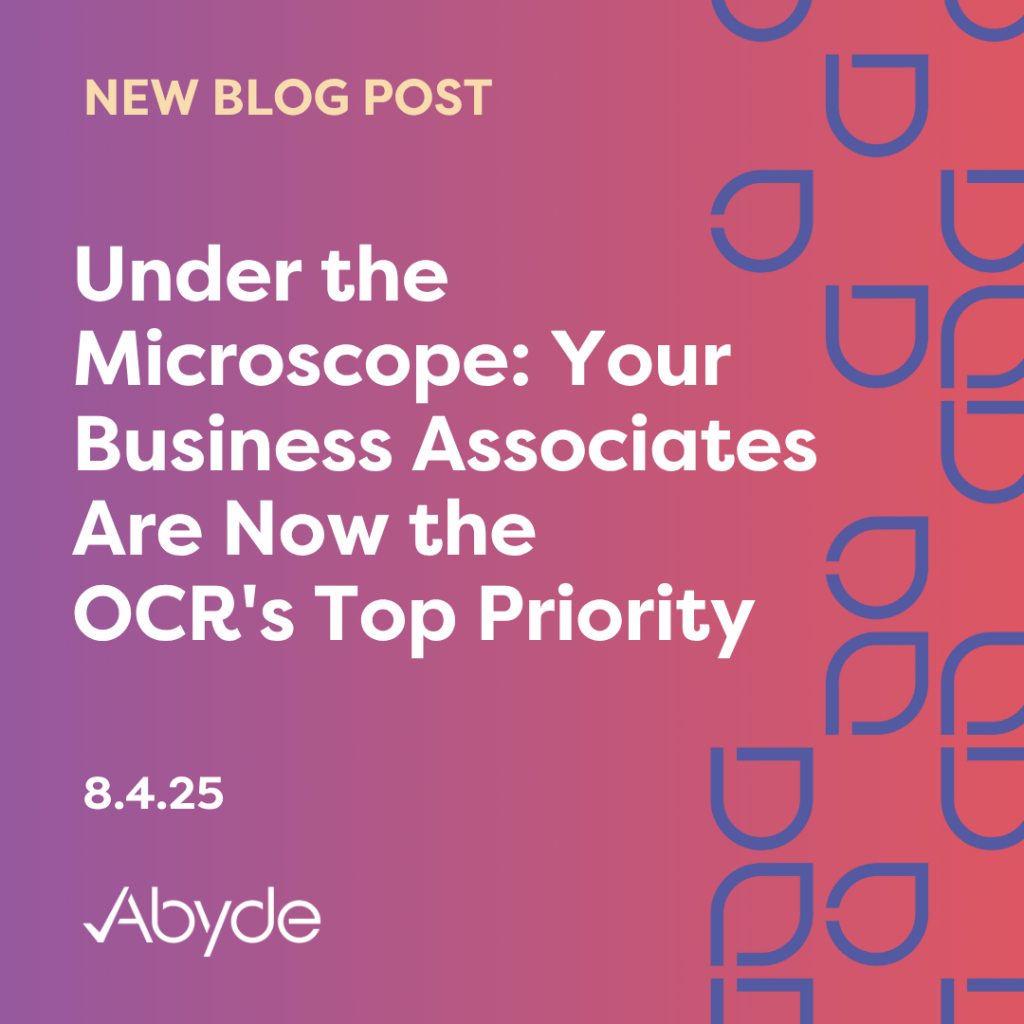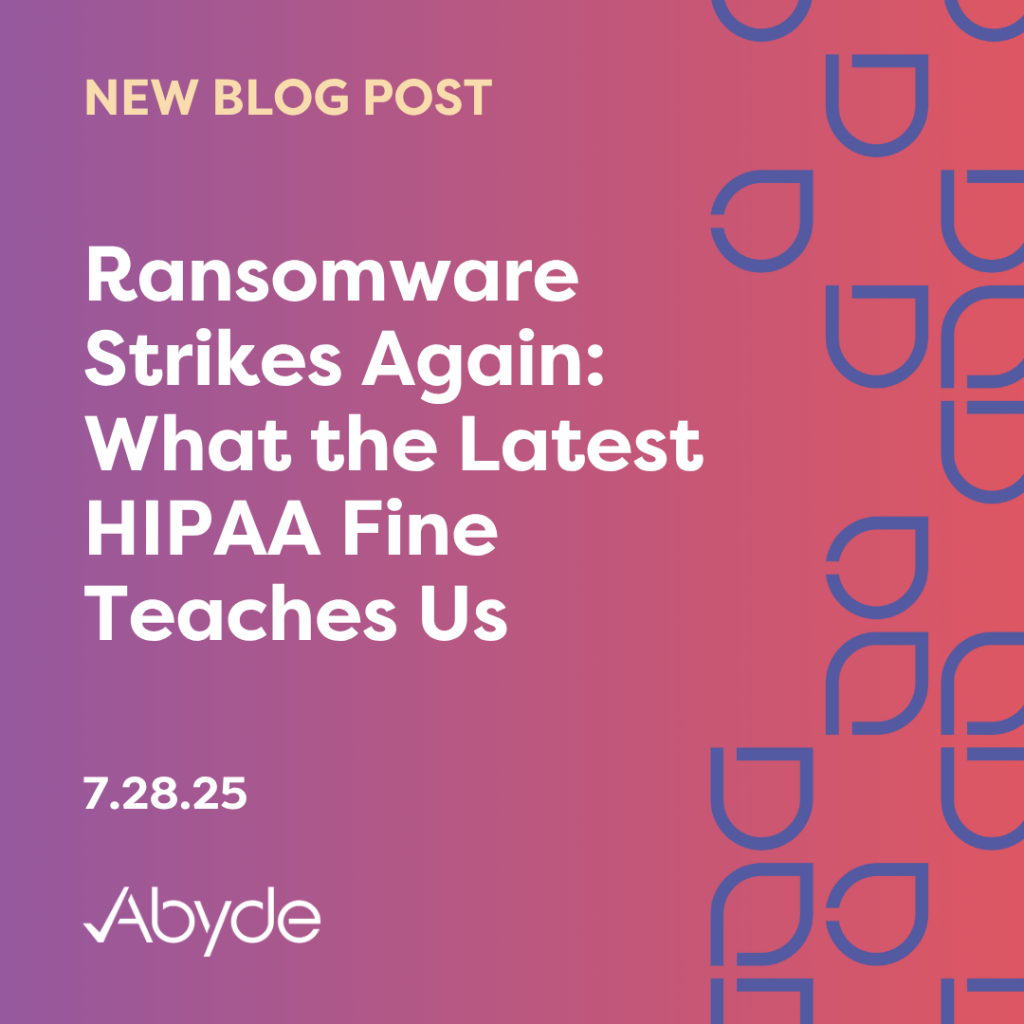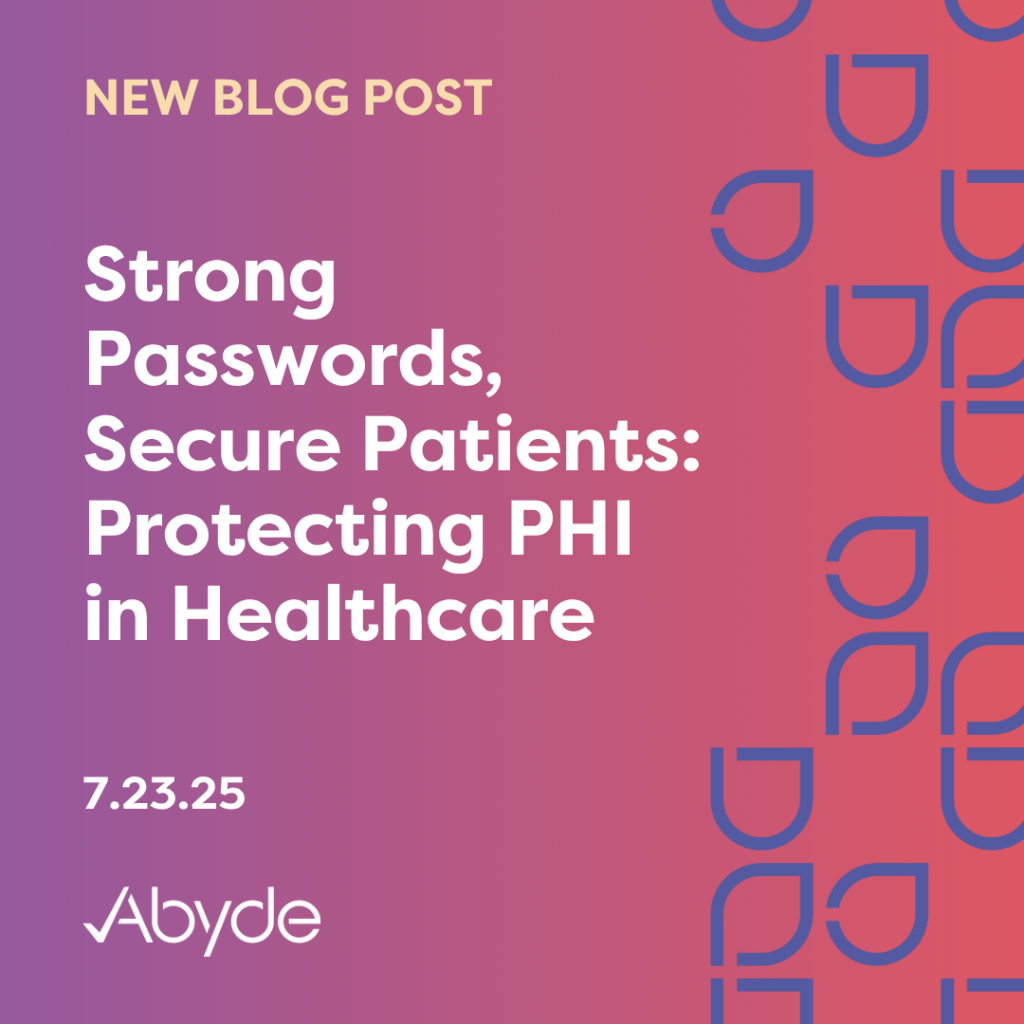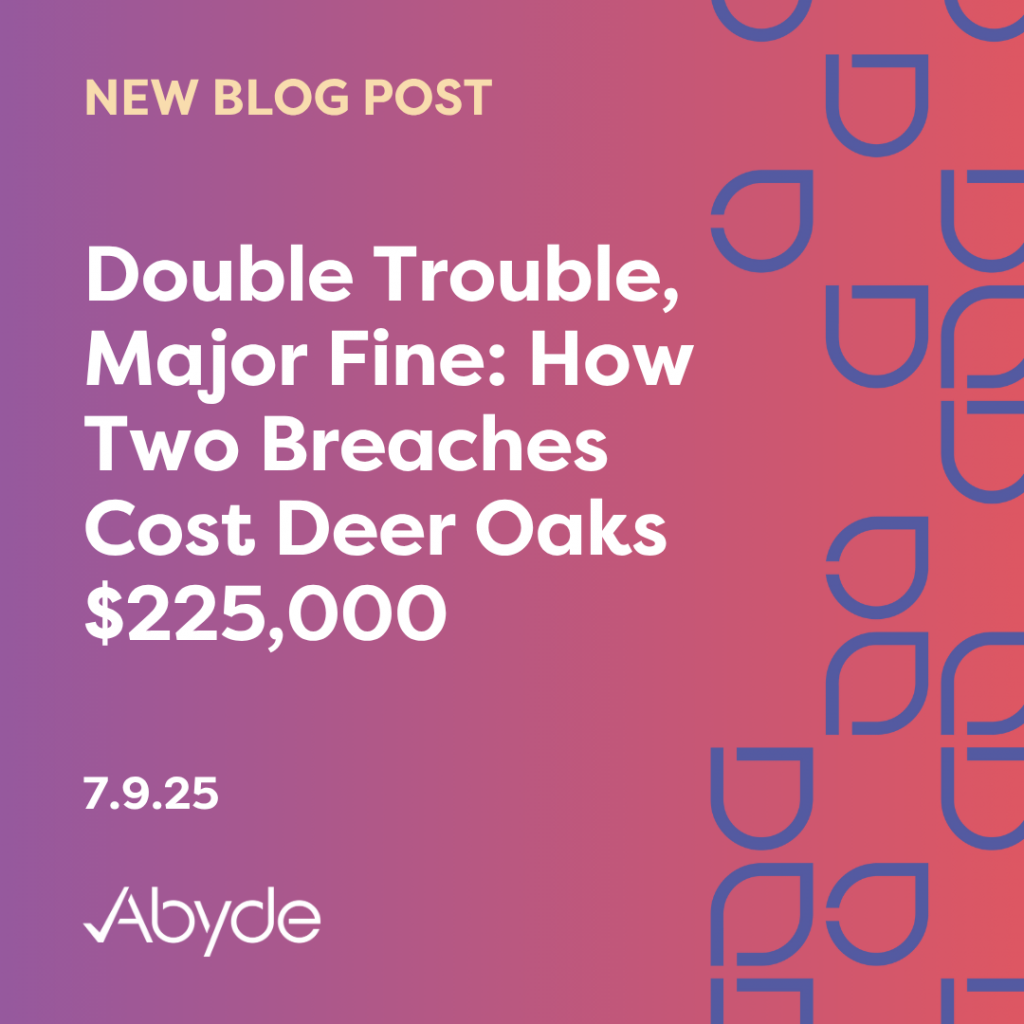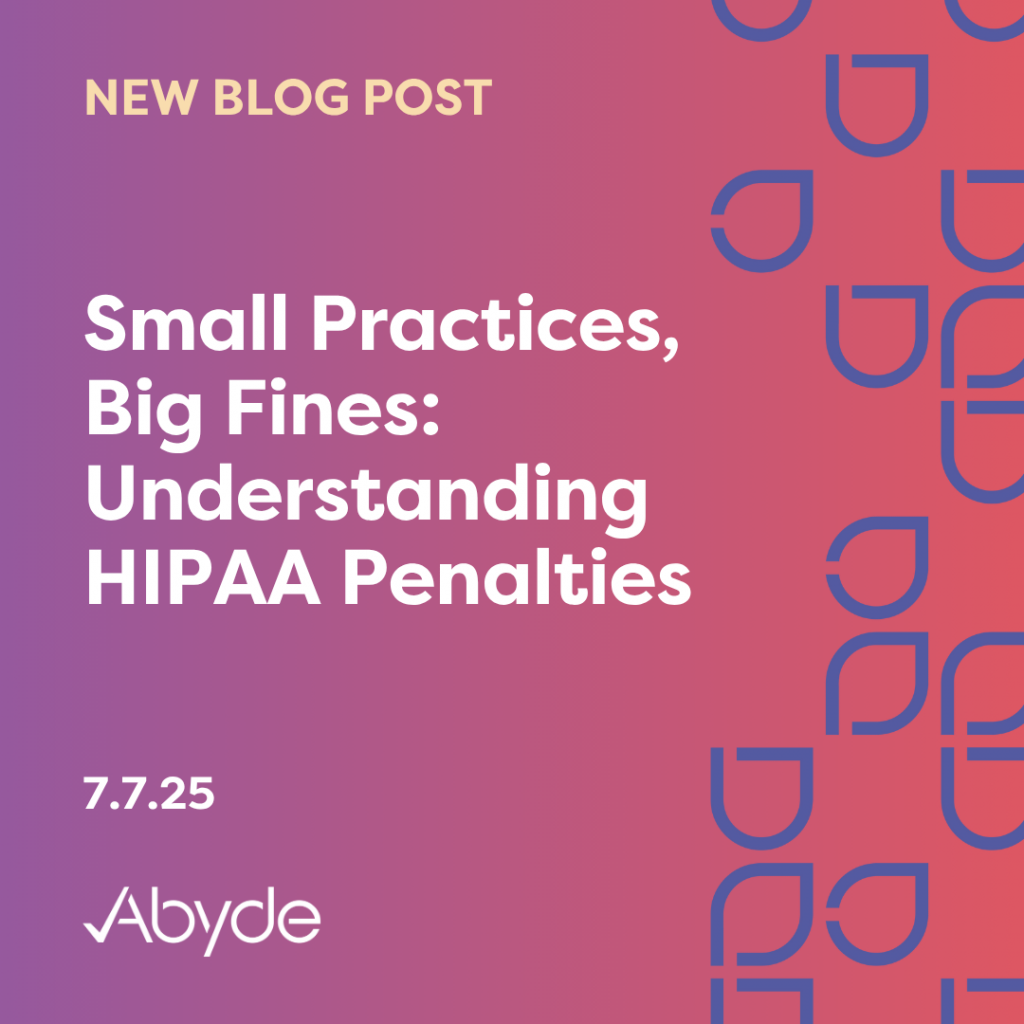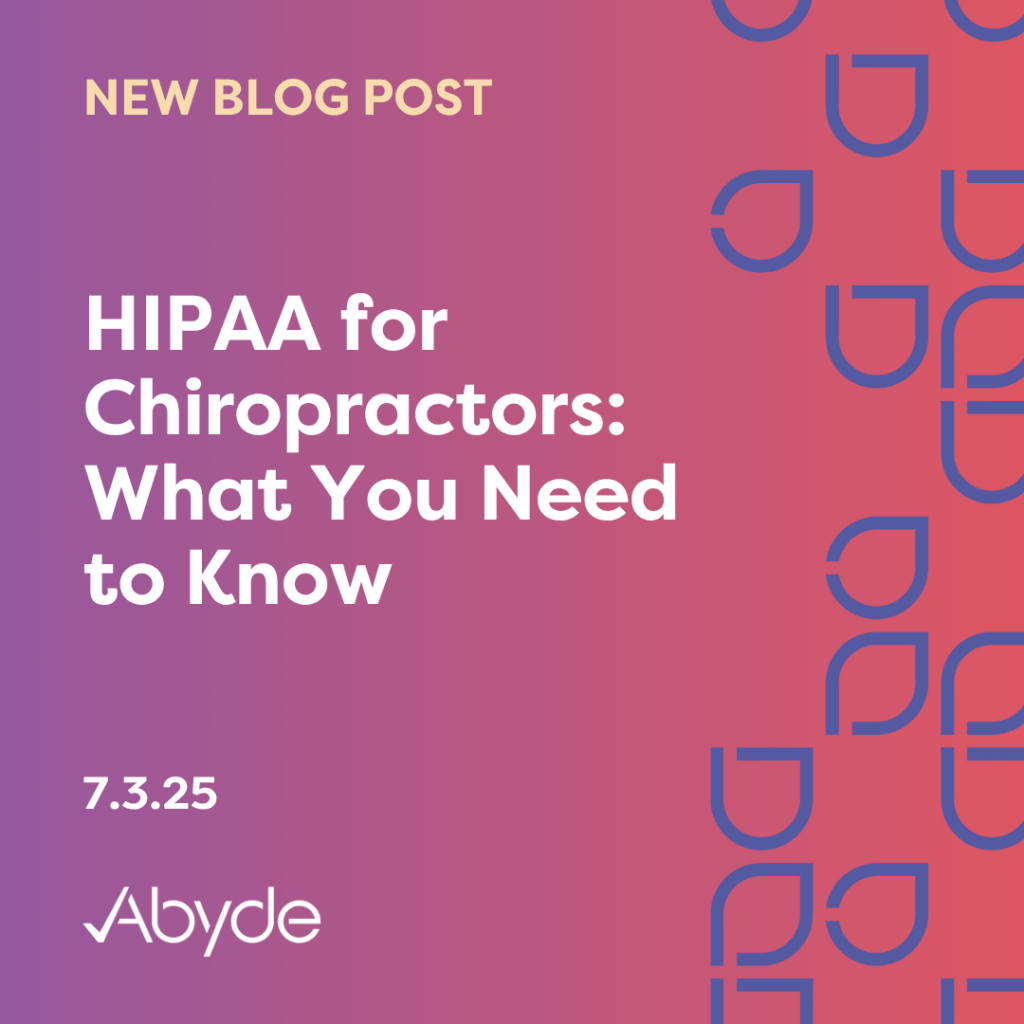August 26, 2025 When scrolling through your inbox, letting your guard down is easy. Maybe you click on that email that looks like it’s from your bank without hesitation, or are swayed by the unsolicited message for a random all-expenses-paid trip. Unfortunately, phishing emails are everywhere, and they target the healthcare industry due to the sensitive nature of Protected Health Information (PHI). BST & Co., CPAs, LLP, known as BST, is a victim of phishing scams. The New York accounting and consulting firm, which works with practices, received the latest HIPAA enforcement, with a $175,000 fine and a two-year Corrective Action Plan or close monitoring by the Office for Civil Rights (OCR). The OCR discovered, after the fallout of a phishing email, that the Business Associate (BA) had failed to complete a Security Risk Analysis (SRA). This is the 10th enforcement of the Risk Analysis Initiative since its introduction last year. An SRA is a requirement for all HIPAA-regulated entities to assess all potential vulnerabilities of any physical, technical, or administrative safeguard in their organization. By identifying any concerns before a breach occurs, organizations are able to better safeguard PHI, keeping both their business and patients safe. This fine reminds us that BAs are just as responsible for upholding HIPAA as traditional medical practices and that completing the SRA is paramount. What Happened? On December 4, 2019, malware entered BST’s network after a successful phishing attempt. From December 4 to December 7, 170,000 patients’ PHI was exposed. The OCR began its investigation after BST reported the breach in February 2020. The OCR discovered that BST had not completed a thorough SRA. With a thorough SRA, BST could have seen the vulnerabilities regarding emails, or even how they secured Covered Entities’ PHI, and either prevented this breach or minimized its impact. Compliant Business Associates Keep Patients Safe Even though BST wasn’t treating patients directly, as an accounting and consulting firm they still had access to a Covered Entity’s PHI. That’s a clear reminder of just how important it is to make sure your Business Associates (BAs) are fully compliant. When your BA follows a comprehensive HIPAA compliance program, your practice gains peace of mind and a stronger, more secure partnership. The right solution helps you stay ahead of your BA responsibilities, whether that’s generating and maintaining Business Associate Agreements, providing staff training with practical tips like email safety, or completing a Security Risk Analysis (SRA) to uncover hidden risks. Connect with our team of compliance experts today to learn more.
HIPAA Turns 29: The Law That Changed Healthcare Forever
August 21, 2025 Happy birthday, HIPAA! Since the Health Insurance Portability and Accountability Act’s inception on August 21, 1996, to say healthcare has changed is an understatement. As we journey through memory lane and maybe open a present or two, it’s essential to see how HIPAA has championed patient privacy rights and made healthcare better for all. Life Before HIPAA While 29 years ago might not feel that long ago, the way healthcare staff handle Protected Health Information (PHI) has completely changed. When HIPAA first arrived, its purpose was simple: improve healthcare portability and reduce fraud. What wasn’t as obvious at the time was that it would reshape how privacy, security, and patient rights were protected across the country. It was the 90s. The age of AOL dialup, grunge, and while not as memorable for most, the start of the digitization of health records. The government realized that healthcare’s move into the digital world would create risks instead of progress without rules for consistency, access, and security. As the law was put in place to set a foundation for the rise of the internet, there was another glaring concern: patient privacy. Before HIPAA, your health records could easily be shared with your employer, landlord, and more. This information could influence hiring decisions, deny loans, and even more reasons unrelated to a patient’s medical treatment or health care reimbursement. HIPAA’s Revolution As HIPAA was signed into effect, its core pillars continued to take shape. The final Privacy Rule was issued in 2003. Just two years later, the Security Rule in 2005 laid out the required technical, administrative, and physical safeguards for PHI. But technology didn’t stop evolving. As electronic health records became more widespread, so did the risks. This led to more legislation, including the HITECH Act of 2009, which strengthened HIPAA enforcement, increased penalties for noncompliance, and introduced the Breach Notification Rule, requiring organizations to notify patients when their data was exposed. The Office for Civil Rights (OCR) also issued a final rule in 2013, which clarified legislation and increased the role that Business Associates play when handling sensitive information, and made it possible for vendors to be audited. In the years since, HIPAA has continued to adapt to new challenges, like the rise of ransomware. Enforcement has also grown sharper, with multimillion-dollar settlements and corrective action plans reminding practices that compliance is not optional. HIPAA continues to grow and adapt to the future of technology, including new proposed updates likely to take effect next year. What’s Next for HIPAA? Over the past nearly thirty years, it’s clear that compliance isn’t just a regulation; it’s a responsibility. Healthcare providers and business associates all share the duty of keeping PHI safe. With new challenges like AI-driven threats, cyberattacks, and shifting regulations, HIPAA’s next chapter will be just as important as its first. As HIPAA continues to evolve, staying on top of HIPAA legislation can be overwhelming. With smart software, it doesn’t have to be. Intelligent software can stream the latest updates, documentation, and more to ensure your staff is compliant. Here’s to HIPAA and what’s next for healthcare compliance. Looking to learn more? Meet with a compliance expert today.
Patient Privacy 101: The Minimum Necessary Standard Explained
August 7, 2025 Under HIPAA, healthcare practice staff must keep a secret. This means everyone with access to patient data, from doctors to receptionists, can’t share any information about a patient. While it might feel enticing for a nurse to tell their friends about an old high school bully coming into their practice with a rash, and revenge might feel sweet, it’s a total HIPAA no-no. One of the pillars of HIPAA is the Privacy Rule, which dictates when and if Protected Health Information (PHI) can be shared. The Privacy Rule keeps patient data secure and allows the best care, with patients knowing their information will remain confidential. However, sometimes information needs to be shared. This is where the Minimum Necessary Standard comes in. With this rule, healthcare providers and their Business Associates can share PHI if it’s vital to complete work tasks. Safeguarding confidential information upholds the integrity of your practice and allows patients to feel comfortable when addressing health concerns. Your practice must follow HIPAA to keep patient data safe and secure. What is the Minimum Necessary Standard? All in the name, the Minimum Necessary Standard defines how HIPAA-regulated entities can share information. Depending on the situation, more information might be warranted to be shared compared to others. The easiest way to explain the HIPAA Minimum Necessary Standard is to compare it to ordering pizza. When you order a pizza for delivery, you only provide the minimum necessary information: your name, what you want to eat, and your address. You wouldn’t share details like what you ate for breakfast or the names of everyone in your house because that information isn’t needed for the delivery. In a healthcare setting, while not as cheesy, the same principle applies. A front-desk receptionist, for example, needs access to a patient’s basic information to confirm an appointment. They don’t need access to the patient’s full medical history. The minimum information required for their job is scheduling and patient identification, not the patient’s back surgery details. The HIPAA Minimum Necessary Standard ensures that everyone, from the front desk to doctors, to even your vendors, can only access the PHI they absolutely need to do their job. In some situations, more information can be shared more easily. These exceptions include disclosures for treatment purposes, such as when a doctor needs a patient’s complete medical history to provide proper care. Your practice can share PHI with the patient directly, or someone with explicit authorization from the patient, or in a public emergency. Finally, disclosures may also be required by law. Simplifying the Minimum Necessary Standard Your staff must uphold the security of PHI. By following the HIPAA Privacy Rule, you stay compliant and build a successful practice. When patients feel confident that their records are safe, they’ll trust you and feel empowered to choose your practice. It’s a serious responsibility. With the right solution, staff can be appropriately trained to handle health records. Smart software can streamline training for your practice and provide dynamically generated policies and procedures for all staff to access and review whenever they have a question regarding the use of PHI. Meet with a compliance expert today to learn more about protecting your practice and patients.
Under the Microscope: Your Business Associates Are Now the OCR’s Top Priority
August 4, 2025 Let’s talk paperwork. While that might not seem like the most interesting or important thing to focus on when running your practice, having the right documentation is key to its success. A Business Associate Agreement (BAA) is one of the many documents you need to be HIPAA compliant when running a practice. When working with Business Associates (BAs), or the third-party vendors who can access your practice’s Protected Health Information (PHI), you must have a signed agreement in place. These BAs can include anyone from your IT company to the company that handles your shredding. In short, if a business has any access to PHI, it’s required. The Office for Civil Rights (OCR) has put Business Associates (BAs) in the hot seat, with proposed new legislation strengthening their requirements and millions of dollars in fines imposed this year alone. It’s time to take a fresh look at your partnerships, and the best place to start is by having a solid BAA. What does a BAA do? First things first, what does a BAA even do for your practice? What does it include? Well, this required agreement outlines all responsibilities your practice and business partner must follow when handling PHI. The document includes the definition of PHI, when the BA can use the data, and how each party must secure data. This legally binding agreement ensures each party understands the serious nature of handling PHI. Overall, it’s another layer of protection to clearly define your relationship with a BA. A BAA is essential, especially when a Business Associate experiences a data breach. Business Associates are frequent targets for malicious actors. One of the first fines in 2025 was a $90,000 penalty for a ransomware breach that targeted a data hosting company. This breach exposed the PHI of patients from 12 different healthcare practices. These 12 healthcare practices would also need a BAA with the hacked party. If not, the Covered Entity could also be liable for the BA’s missteps. The OCR has also fined Covered Entities for missing a BAA. Here’s a prime example: A healthcare provider was in a nasty dispute with their BA. They even reported the BA to the OCR, claiming the BA was holding PHI hostage for a $50,000 payment. But here’s where it took a turn: The OCR didn’t just investigate the BA; they also focused on the healthcare provider. The result? The OCR slapped the provider with a $100,000 fine for missing crucial documentation, including, you guessed it, a BAA. Keeping BA Partnerships Secure While ensuring documentation is in order is no one’s idea of fun, protecting your practice and keeping patients’ data safe is imperative. With the right solution, your practice can make documentation a piece of cake. While a BAA may not be as appealing as chocolate fudge, software can streamline the process, creating a legally sound and complete document that is just as satisfying. Meet with an expert today to learn more about ensuring compliant vendor relationships.
Ransomware Strikes Again: What the Latest HIPAA Fine Teaches Us
July 28, 2025 Healthcare’s cybercrime nightmare just got more expensive. With over half a million dollars in fines and the second HIPAA ransomware fine issued this month alone, it’s time to acknowledge the serious threat cybercrimes pose to healthcare. The Office for Civil Rights (OCR) just announced its latest HIPAA fine, following a ransomware attack affecting a surgery center in New York, totalling $250,000 and placing the practice under a two-year Corrective Action Plan (CAP). The two-year period includes constant government monitoring, ensuring the healthcare provider has taken action to mitigate risks and secure Protected Health Information (PHI). Here’s where things get interesting. Upon further inspection, the exact ransomware variant, PYSA, explicitly targets the healthcare industry. Think about it: cybercriminals know the absolute treasure trove of sensitive patient data a healthcare organization holds. As malicious actors know the importance of patient health records, your practice must be extra vigilant when handling PHI. What Happened? In March 2021, an unauthorized actor gained access to the networks of Specialty Surgery Center of Central New York (also known as Syracuse ASC, LLC). The hacker deployed ransomware in the organization’s networks for over two weeks. This ransomware exposed nearly 25,000 patient records, with access to Social Security numbers, addresses, health histories, and more. Syracuse ASC, LLC, notified the OCR of this breach in October 2021, over six months after the initial intrusion. This wait violated the HIPAA Breach Notification Rule. Given the massive breach, the healthcare provider had to notify the OCR, patients, media, and potentially the State Attorney General within 60 days of discovery. Notifying these parties allows patients to take control and explore options for protecting and monitoring their data post-breach. Additionally, it could have expedited the OCR and State officials’ investigations into the extent of the ransomware attack. During the investigation process, the OCR made another startling discovery: no Security Risk Analysis (SRA) was in place. A thorough SRA is required to maintain your practice’s security. By examining existing safeguards, you can identify and address vulnerabilities proactively before they cause problems. This practice learned the hard way about a common HIPAA pitfall: missing an SRA. Due to this, a hacker infiltrated and exploited the vulnerability of an insecure network, leading to a quarter-million-dollar fine. Protecting Your Practice Against Ransomware Hackers have discovered a gold mine with medical records costing upwards of $1000 on the dark web, compared to the average credit card number fetching 25¢. When hackers directly target healthcare practices, your compliance program and safeguards must be in order. Proactive compliance is key to the security of PHI. Your practice can mitigate and minimize ransomware threats by using the right compliance solutions and robust IT assistance. With the right software, it’s easy to streamline pillars of HIPAA compliance, like the SRA, identifying issues early to avoid risking your patients. Meet with our team of experts to learn more about how you can simplify HIPAA compliance for your practice.
Strong Passwords, Secure Patients: Protecting PHI in Healthcare
July 23, 2025 While Password123 might be easy to remember, it might not be the best password. In our current healthcare landscape, intertwined with technology, from EHR systems to patient communication, it’s time to upgrade password security. A strong password and other layers of protection are key to keeping your practice’s logins secure and, ultimately, patient Protected Health Information (PHI). Thorough password management might be the deciding factor in stopping a major breach. Just look at the Change Healthcare debacle. Billions of dollars lost, systems crashed, insurance claims in limbo, and over 100 million patients exposed. At the root of this? Missing multi-factor authentication (MFA). After major breaches caused by poor password management, it’s time to prioritize your passwords and adhere to best practices. Ditch the Default Password Let’s face it. It’s tempting to use passwords everywhere. However, it’s a password security red flag. When it comes to passwords, we recommend at least eight characters with several unique characters, including a number, an uppercase letter, a lowercase letter, and a symbol. This enhanced security makes unauthorized account access more challenging. Also, if one account is compromised, the breach can be more easily contained than if all logins shared the same password. On that note, ensure all staff have their own logins. This isn’t just about stopping password sharing; it’s about giving your practice the power to keep a close eye on who’s accessing Protected Health Information (PHI) and quickly spotting anything out of the ordinary. When in Doubt, Change it Out We also recommend changing passwords at least three times a year, keeping account access current, and making unauthorized users’ access more difficult. Regular password changes help mitigate risk if an older password is exposed in a data breach, and make it harder for hackers to brute-force guess your password. They also ensure that anyone who has lost access to your accounts, such as offboarded staff, cannot continue to access systems. By consistently making password changes a part of your security routine, you create a dynamic defense that significantly reduces the risk of unauthorized access. Your Password’s Best Friend: Multi-factor Authentication On top of having a secure and current password, having MFA enabled on all your accounts is key to keeping PHI safe. Just like peanut butter and jelly, passwords and MFA are a perfect pair. MFA is that crucial next step, providing an extra layer of security that makes a major difference in keeping your information safe. Common MFA examples include a text, a random code generated, or even through an automated call. That extra protection ensures that the person logging in is authorized and authenticated. This extra level of protection ensures that when someone tries to log into your accounts, it’s truly you. It’s all about verifying and authenticating that the person accessing the account is authorized. With MFA enabled, a hacker won’t be able to log in without that unique code sent to your phone, an app, or even your email. This significantly increases the difficulty for unauthorized access, giving you peace of mind that your PHI remains secure. Securing your Compliance Program The sheer volume of tasks can make managing compliance feel like a full-time job, from multi-factor authentication to complex password policies and regular access reviews. While it’s easy to feel overwhelmed, your practice can streamline this with the right solution. Smart software simplifies compliance for your practice by sending out compliance reminders, such as when it’s time to change your password, providing best tips and practices, and automating policies and procedures for your practice. Meet with an expert today to see how you can streamline compliance for your practice.
The Bite of HIPAA: True Stories of Dental HIPAA Fines
July 15, 2025 Running your dental practice comes with its unique set of challenges. You’re wearing multiple hats, and it’s a stressful fashion statement. While OSHA is always on your radar, just from the nature of dentistry, forgetting about HIPAA can be costly. While you think your practice would never be in the hot seat, small dental practices, you’d be mistaken. See how to avoid these common pitfalls in your dental practice, allowing you to continue running it effectively. Time is of the Essence: Right of Access Under the HIPAA Privacy Rule, HIPAA not only defines how Protected Health Information (PHI) needs to be secured but also how it needs to be shared with authorized parties. Right of Access is a part of this rule. This rule requires healthcare providers to deliver requested patient records within 30 days of the patient’s request. Gums Dental Care, a small Maryland dental practice, was fined for violating this HIPAA requirement. The patient initially requested their records in April 2019. The practice did not provide records until May 2022. The patient alerted the Office for Civil Rights, which started a long, overwhelming journey for Gums Dental. The OCR intervened countless times, requiring the practice to provide the patient with their records. The dental practice continued to refuse to provide the patient with records, leading to more legal battles, money, and time wasted. The grand finale? Over three years from the date of the first request, and countless interventions from the OCR, the practice was fined $70,000. Less is More As the saying goes, “If you can’t say anything nice, don’t say anything at all.” This rule applies to all forms of communication and also works to avoid HIPAA violations. While social media brings people together, you must tread a fine line when handling PHI and posting online. One part of this is responding to patient reviews. You cannot confirm or deny that a patient attended your practice, even if the patient is talking positively about their experience there. If you’d like to use someone’s story for marketing materials, like a before-and-after photo of their smile, ensure they sign a consent form. If someone leaves a negative review, you cannot defend your practice by sharing information about the patient. For example, if a patient consistently posts bad reviews but fails to mention that they are always late, you should not call them out publicly online. Instead, address the issue privately and communicate with them securely. Dentists have been fined for social media violations. Dr. U. Phillip Igbinadolor, a dentist in North Carolina, lost his temper after a patient left a negative review on the practice’s Google page. After the dentist posted PHI in response, ridiculing the patient, the patient reported him to the OCR. As a result, the OCR fined the practice $50,000, showing that the price of failing to simply “keep your words to yourself” can be extraordinarily steep. Coming Clean is Key With cybercrimes in healthcare skyrocketing and large data breaches due to ransomware attacks increasing by 264%, having the proper safeguards in place is crucial. While no practice can be completely immune from a breach, the right barriers in place can mitigate risk and minimize impact. However, if your practice is breached, you must notify the OCR and patients quickly. Under the HIPAA Breach Notification Rule, patients must always be notified within 60 days, regardless of the size of the breach. If the breach affects fewer than 500, your practice must inform the OCR within 60 days after the calendar year in which the event occurred. If a breach affects more than 500, the OCR, and depending on the state, the Attorney General, must be notified within 60 days as well. The Indiana Attorney General recently fined Westend Dental, a multi-location dental practice in Indiana, for its response to a ransomware attack. While the breach occurred in October 2020, the practice did not alert the required parties until October 2022, two years after the initial attack. The Attorney General began investigating this attack after a patient complaint, and it was then discovered that the practice attempted to cover up a ransomware attack. The investigation discovered that, in addition to violating the HIPAA Breach Notification Rule, Westend Dental had improper training, unprotected servers, no Security Risk Analysis (SRA), missing policies, and more. The outcome? A $350,000 fine from the Attorney General, highlighting the importance of proactive compliance and properly notifying affected parties after a healthcare breach. How to Protect Your Dental Practice While compliance for your dental practice might feel overwhelming, the right solutions can streamline your compliance program. Smart software solutions can pinpoint vulnerabilities and provide actionable insights to avoid common pitfalls dental practices face. The right compliance software can also provide a comprehensive hub for everything HIPAA-related for your practice, including right of Access training, social media guidelines, and the SRA. Meet with a compliance expert today to learn more about streamlining compliance for your dental practice.
Double Trouble, Major Fine: How Two Breaches Cost Deer Oaks $225,000
July 9, 2025 Handling a HIPAA investigation is stressful enough. Add a ransomware attack in the mix? A HIPAA nightmare. The Office for Civil Rights (OCR) announced its first fine under the latest Director, Paula M. Stannard—a behavioral health organization fined $225,000 and placed under a two-year Corrective Action Plan (CAP). This fine culminated several violations, but at its core, it was the lack of a Security Risk Analysis (SRA). This latest enforcement highlights the OCR’s ongoing heightened enforcement and the importance of a thorough, proactive compliance program before issues occur. What Happened? The behavioral health provider, Deer Oaks, a Texas-based Covered Entity, was first investigated in May 2023 following a patient complaint. It was discovered that following a pilot program for an online patient portal wasn’t properly coded, publicly disclosing 35 patients’ Protected Health Information (PHI). This PHI included sensitive discharge paperwork and medical assessments that were easily accessible online. Unfortunately, this was only the beginning of the investigation for Deer Oaks. The OCR expanded its investigation when the behavioral health provider faced a ransomware attack in August 2023. A malicious actor used a compromised account and held over 170,000 patients’ information for ransom. While there is no confirmation if the provider paid the ransom, improper account security led to this massive breach. With two major HIPAA breaches within three months, the OCR didn’t have to dig deep to find the common thread: the missing SRA. The SRA is a thorough assessment of potential vulnerabilities a practice might face. In this situation, an SRA could have identified the employee portal or account password management as a concern. This would allow the practice to address these issues proactively. From the initial investigation triggered by a patient complaint in May 2023 to the ransomware breach in August, the OCR fined the practice nearly a quarter of a million dollars and mandated two years of government oversight. These costly few months served as a valuable lesson in proactive compliance. Protecting Your Practice A lapse in compliance, no matter how short, can lead to serious consequences. That’s why proactive compliance is essential. Need a wake-up call? Over $7 million in fines have been levied since the beginning of 2025. The OCR has heightened its enforcement, already eclipsing the number of penalties from last year. As the OCR continues enforcing HIPAA legislation, a robust compliance program is vital for your practice’s success. With the right solution, your practice can streamline HIPAA compliance and easily complete requirements, like the SRA, without disrupting your practice’s workflow. Meet with a compliance expert today to learn more about streamlining HIPAA compliance for your practice.
Small Practices, Big Fines: Understanding HIPAA Penalties
July 7, 2025 Did you know that over half of physicians work in small medical practices with 10 or fewer physicians? You likely wear many hats when working in or even running your small practice, from taking care of patients to clerical work, and of course, HIPAA compliance. Although other priorities may push HIPAA compliance to the side, being compliant is essential for the success of your practice. It’s a common misconception that since a practice is small, the Office for Civil Rights (OCR) will not investigate it if an issue occurs. The OCR has fined several small practices recently, with ramped-up enforcement, nearing $10 million within the year’s first half. Here are some of the most recent fines imposed on small medical practices and how your practice can avoid them. The SRA Superpower Comprehensive Neurology, PC, a small neurology practice in New York, was recently fined $25,000 after a ransomware attack exposed the practice’s insufficient protections for securing Protected Health Information (PHI). Specifically, the practice did not have a Security Risk Analysis (SRA). The SRA is an annual assessment of your practice’s administrative, technical, and physical safeguards, reviewing potential vulnerabilities. When handled properly, the SRA allows you to mitigate risks before a situation occurs. While commonly missed, the SRA is the foundation of a successful practice. To combat this, the OCR has recently enacted the Risk Analysis Initiative, which has brought increased scrutiny and led to nearly a million dollars in fines since its implementation late last year. Completing an SRA is paramount to protect your small medical practice from similar initiatives. The SRA is a crucial protective barrier, proactively preventing issues before they escalate into significant problems. For instance, if the practice completed an SRA, they could have seen any technological shortcomings that led to the severity of the ransomware attack. Alert the Press! Vision Upright MRI, a small California healthcare provider focused on medical imaging, was fined $5,000 in May. In addition to missing an SRA following a breach, the small practice from California did not adequately inform patients. As part of the Breach Notification Rule, relevant parties, like impacted patients, the OCR, and, depending on the size of the breach, the media, and more, must all be notified following a breach. Patients can decide how to secure their information by being informed, and the practice should pay for credit monitoring. With over 21,000 patients’ PHI compromised, the practice needed to notify several parties quickly. Regardless of the breach’s size, a practice must inform all affected patients within 60 days of discovery. However, given that this breach affected over 500 patients, the OCR, media, and some states (like California), the state attorney general also required notification within that time frame. Once you have mitigated the situation and understood the full scope, it’s time to alert all necessary parties. If the breach impacts fewer than 500 patients, while patients still need to be notified within 60 days, the practice must notify the OCR within 60 days of the calendar year in which it occurred. Deliver Records Swiftly Gums Dental Care LLC, a small dental practice in Maryland, was fined $70,000 after refusing to provide a patient’s medical records. Under the HIPAA Privacy Rule, patients must receive their medical records within 30 days of request. This requirement, known as the Right of Access, is one of the most common violations. In this situation, Gums Dental Care provided records three years after the initial request. To avoid similar penalties, ensure all staff are trained efficiently to provide patient records. Quickly addressing patient requests prioritizes their needs, secures your practice, and builds patient trust. Simplifying Compliance for Your Small Practice While following the complexities of HIPAA might feel overwhelming, with the right solution, it doesn’t have to be. Intelligent software can streamline compliance for your practice, alleviating the responsibility and freeing time to spend with patients. Smart solutions also encompass HIPAA’s requirements, including the SRA, breach logs, and staff training. Schedule a consultation today to learn more about simplifying compliance for your small practice.
HIPAA for Chiropractors: What You Need to Know
July 3, 2025 In chiropractic healthcare, staying aligned with regulations is key. While some might consider Chiropractic medicine an alternative healthcare option, the Health Insurance Portability and Accountability Act (HIPAA) covers the field. That means your practice must secure all patient data transmitted to and from a chiropractic office. Protected Health Information (PHI) encompasses all personally identifiable data, such as names, birth dates, and treatment details, and must be securely maintained. For chiropractic offices, this commonly includes comprehensive treatment plans and spinal X-rays. For chiropractic offices, no matter the size, HIPAA for chiropractors isn’t just a recommendation—it’s required whenever patient data is involved. What does this mean for your chiropractic practice? With the right barriers, you can continue to adjust patients while ensuring the safety of Protected Health Information (PHI), promoting patient trust and transparency in protecting their data. What’s Required for HIPAA for Chiropractors? While solely a yearly training might be what your practice expects, HIPAA for chiropractors requires a much more comprehensive approach. HIPAA has three pillars: the Security Rule, the Privacy Rule, and the Breach Notification Rule. The Security Rule is focused on the administrative, technical, and physical safeguards your practice must have to secure patient data. Under this rule, your practice must complete a Security Risk Analysis (SRA) annually. The SRA is an extensive review of your current practices in your chiropractic office. Everything must be documented, from how your practice checks in patients to how your staff electronically sends patient data. By reviewing this every year, your practice can identify vulnerabilities before they become compliance issues. While this annual review might seem simple, unfortunately, it is a frequent pitfall for practices. When randomly audited, only 14% of healthcare practices could produce a compliant SRA. A missing SRA is one of the most common reasons for HIPAA fines, with over $150 million levied to healthcare practices across America. Your chiropractic practice must ensure that the proper safeguards are in place and that PHI is shared carefully. That’s where the Privacy Rule comes into play. According to the Privacy Rule, health information should be shared as little as possible and only when absolutely necessary. For instance, while you may want to share patient stories, all health information must stay confidential. This rule also mandates that patients provide their health records to those who request them within 30 days of the initial request. This rule requires thorough training with staff, making sure all are aware of the responsibility they must uphold when handling patient data. Lastly, the Breach Notification Rule establishes a required course of action after a breach. Even with the proper safeguards and minimum health information shared, breaches can happen. If patient data is breached, chiropractors must notify impacted patients within 60 days of discovery, regardless of the size of the breach. Depending on the number of patients impacted, the Office for Civil Rights (OCR) must also be notified. Did you accidentally print out and provide someone else’s information to a patient? This must be reported to the OCR by 60 days after the end of the calendar year. A major ransomware attack exposed the information of over 500 patients? The OCR must be informed within 60 days. This also depends on what state your chiropractic office is in, so make sure to check state law and see if your state attorney general must also be notified. Adjusting Your Compliance Program While this might feel overwhelming for your chiropractic office to handle, your organization can easily achieve compliance with the right compliance solutions. Due to HIPAA’s complexity, smart software solutions can walk your chiropractic practice through every step of the process. Software can easily streamline annual requirements, like the SRA, asking intuitive questions to identify compliance gaps proactively. Other requirements, like training, policies, and procedures, can also be found in a centralized hub. By simplifying compliance, your chiropractic office can commit to what it does best: adjusting patients to improve their well-being and quality of life. Meet with a compliance expert today to learn more about HIPAA for chiropractors.
